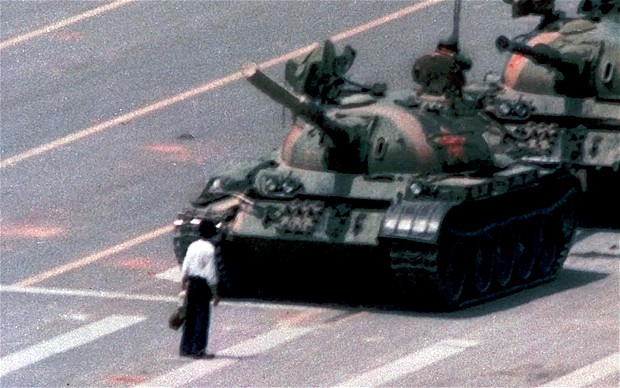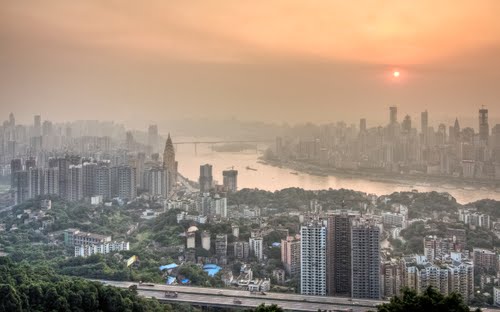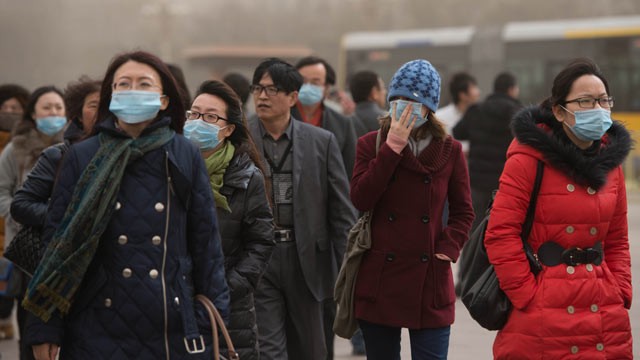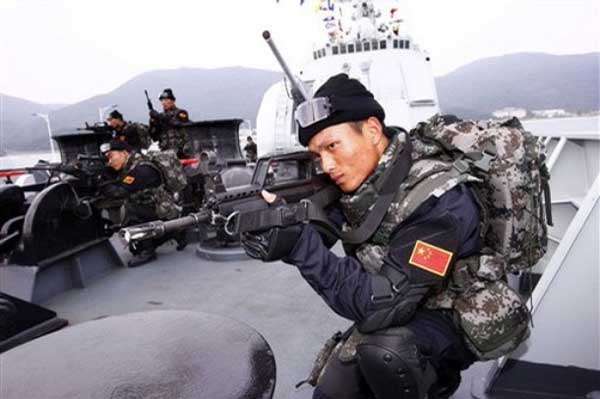
Seeing as today marks the 24th anniversary of the Tiananmen Square massacre, it’s worth taking a moment or two to reflect on the events of 1989 and the way in which they propelled China along its current course. I found the below NYT article, of note, because it highlights just how many of members of China’s current leadership essentially came of age (politically) at the precise moment that China’s brief flirtation with political freedom was being crushed under the treads of tanks.
[“Elite in China Molded in Part by Tiananmen,†The New York Times, 6/4/2013]
Although some at the time imagined that Tiananmen would only be the beginning of a popular uprising against Communist Party rule, as we know now, the ability of China’s leaders – in particular Deng Xiao Ping and Jiang Zemin – to transform widespread anti-government frustration into an era of capitalist-fueled nationalism, remains an unprecedented feat in world history. Despite the undeniable horror of the massacre itself, what followed was an entirely new type of socio-economic order that lifted more human beings out of poverty (and in a shorter period of time) than the world has ever experienced. Calls for democracy were swiftly outnumbered by calls from iPhones.
Of course, political dissent still exists in China (especially in rural areas where there have been thousands of uprisings against corrupt local officials), but so far it has been contained and a majority of Chinese citizens appear to have embraced the twin ideals of joining a rising middle class and restoring what they believe to be China’s rightful role as one of the world’s dominant powers (if not, THE dominant power…)
There’s this (a short film on violence in the Chinsese countryside)
But also this . . . (The skyline of Chongqing, a mega-city with an estimated population of 28 million)

Several questions occurred to me while reading today’s NYT article:
(1) Will the new Xi Jin Ping government inevitably continue political suppression or begin to see that greater liberalization can offer significant economic benefits? In particular, as more ordinary Chinese citizens purchase shares of public companies, a lack of reliably transparent financial reporting is already limiting China’s competitive edge. If the financial press gains new freedoms, can other reporters still be constrained?

(2) What role will be played by the environment? With the citizens of Beijing and other Chinese cities suffering staggeringly high rates of pollution-induced lung cancer and other ailments, when exactly does a middle class society finally reach a breaking point and demand some variety of new leadership?

(3) Xi Jinping has publicly stated multiple times that his central policy will be “Army First.†China is creating its first blue water navy since the 15th century, building foreign bases to protect investment in Latin America and Africa and engaging in what this blog has already described as cyber-warfare against the United States. On the other hand, Xi has also had unusually stern words for North Korean dictator Kim Jong Eun – an unexpected interaction that a number of Asian policy experts believe to have helped quiet recent tensions on the Korean peninsula. What is Xi’s actual intent when it comes to foreign policy?
Consider the role of oil, for example. China is the world’s second largest petrolium consumer and therefore has a substantial interest in purchasing at the lowest possible price. Russia is one of the world’s largest oil producers and would prefer to sell at the highest possible price. Insofar as Russia continues contributing to Middle Eastern tension – say, by arming the Assad regime in Syria - oil prices evenually will begin to rise, even with America’s recent shale discoveries. Therefore, is it possible that Mr. Xi might one day find his fortunes are more closely aligned with the West than with Putin?

Clearly, I don’t have the answers, but I would love to use this space to create a dialogue concerning what I believe to be the preeminent foreign policy challenge of our time: confronting a rapidly rising China. No matter how the PRC develops, its effects on the United States – economically, politically, environmentally and culturally – will be enormous. Indeed, they already are.

